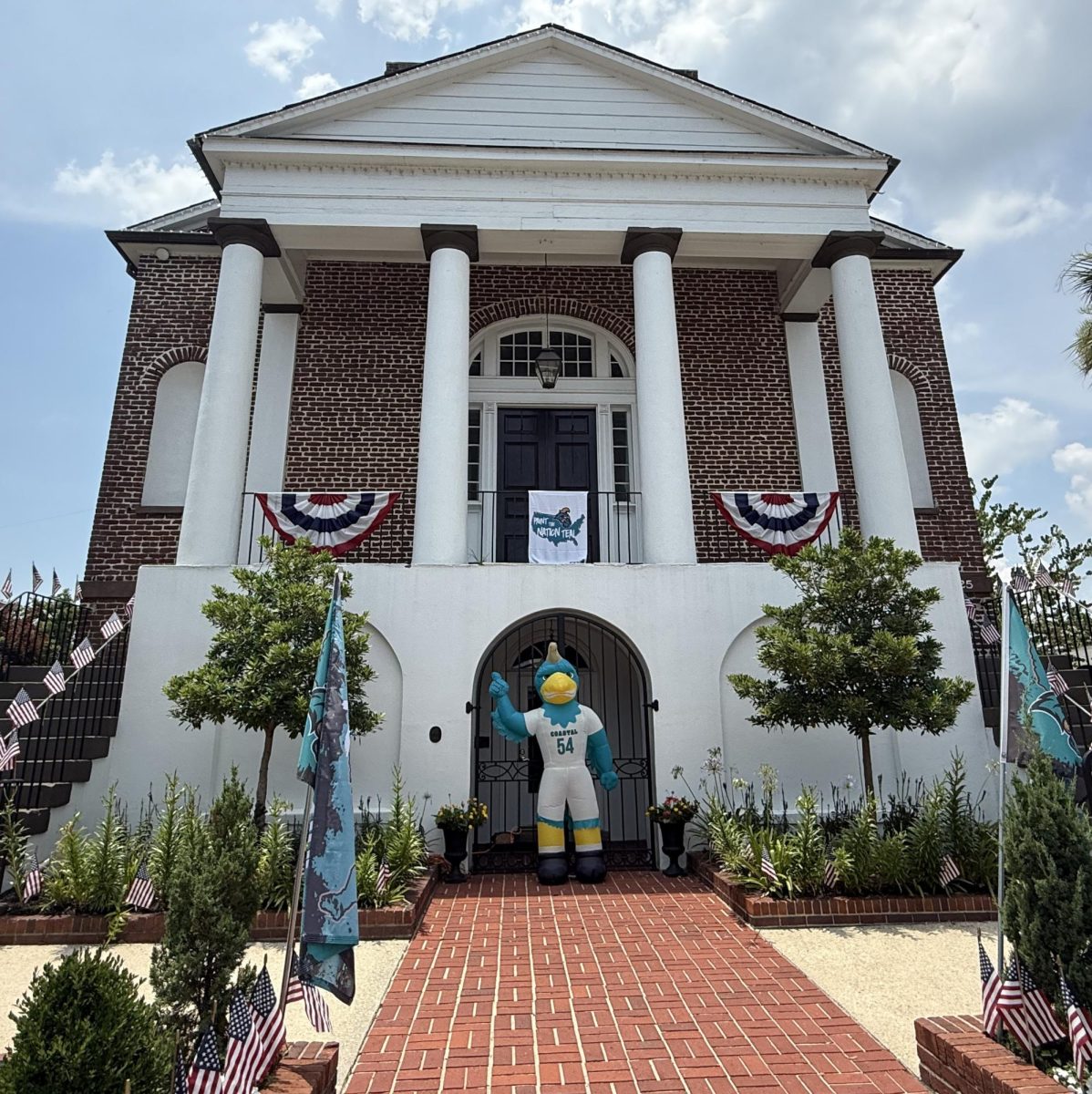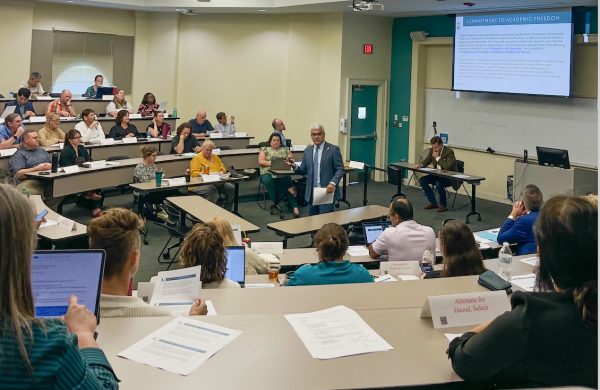Latin American film fest: Diversity, equity and inclusion through cinema
The annual Latin American Film Festival celebrated the remainder of Hispanic Heritage Month.
The event was organized by Mauricio Castillo, a Latin American Studies and Spanish professor. Three out of the four showings included “A Bruddah’s Mind,” “Birds of Passage” and a film from the Dominican Republic, “Miriam Lies.” The first film was Brazilian and the second was Colombian which displayed examples of Latin American cinema.
Castillo said he would appreciate it if more students came to the showings of the films, especially since it is free to attend. The next showing is of “Liquid Truth,” another Brazilian film on Oct. 19 in the Lib Jackson movie theater.
“Last year we had much better attendance. We actually had some professors and retirees from around the area come visit during the showings and comment on the film afterward,” Castillo said.
He said there were about 60 to 80 students that attended each film showing last year.
All of the showings follow up with Q&A with the directors or the lead actors of the film for students to interact with the cast. The last film was an exception due to scheduling conflicts.
Castillo said it is sometimes difficult to coordinate with the guest speakers to show up. He said the planning takes months in advance but improves the experience.
“Our distributor company, Pragda, helps me with some primary contacts but sometimes they don’t answer, and I have to follow up with an email,” Castillo said. “Everyone I asked around said they really enjoyed that and they said they had a better understanding of the film after talking to the directors.”
The films are handpicked by Castillo and he has certain criteria for deciding what films to put into the lineup. He said they must be recent within the past several years and the topics must be contemporary and relate to students. Castillo said he chooses films that have timely topics regardless of the country of origin.
“What we’re trying to do is build intercultural dialogues not only with the film but also with the guests and the students. The goal isn’t to just watch a film and appreciate a different culture and diversity,” Castillo said. “It’s so the students can reflect on what they watch and reflect on their own lives.”
Castillo’s goal is to create empathy within the environment through dialogue in the Q&A.
There will be a reception following the final film showing on Oct. 19 starting at 4 p.m. with food provided.




















